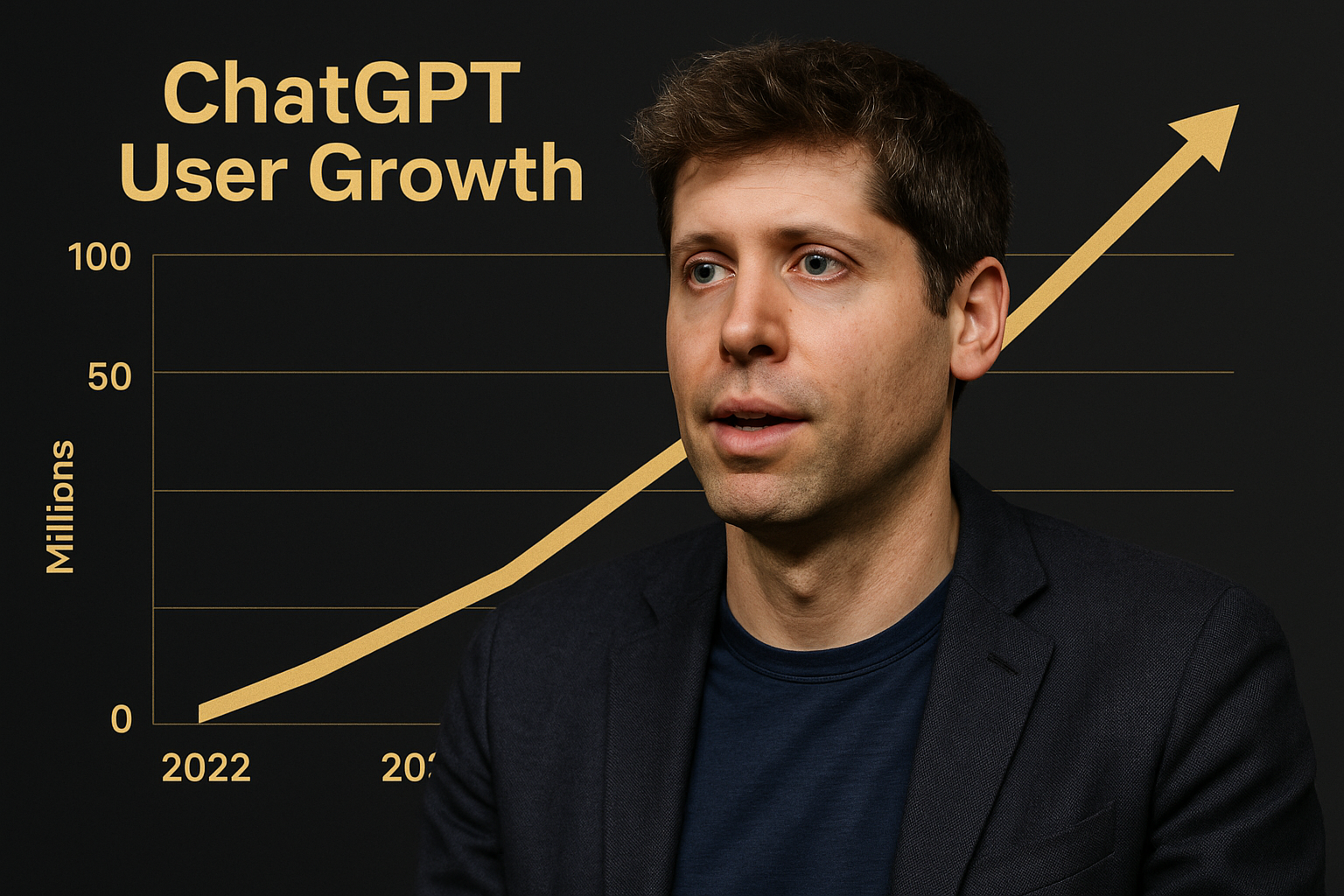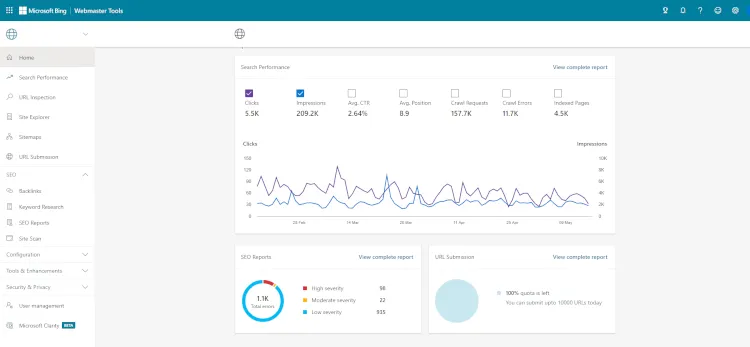Boost Brand Visibility with ChatGPT Integration

You've seen it. You ask, it answers. ChatGPT has flipped information gathering on its head, becoming a real-time, AI-driven search engine. For growth marketers, that means it’s time to rethink brand visibility. This isn’t a tweak, it’s a pivot. Let’s get tactical.

ChatGPT: A New Frontier in Brand Awareness
The Evolution of ChatGPT and Impact on Information Retrieval
ChatGPT is no longer just a chatbot, it’s a live portal to the web. With over 400 million weekly active users and 5.19 billion monthly visits in late 2024, it’s the fastest-growing gateway to answers. And for brands, that traffic isn’t a trickle, it’s a flood. Visibility in ChatGPT is now as critical as ranking on traditional search engines.
This isn't Google lite, it’s a voice-, chat-, and context-first interface that surfaces information with precision, not ads. Brands now compete not with plug-ins or search results but with direct content placement that show up in ChatGPT’s responses .
Revolutionising Digital Consumer Behaviour
ChatGPT delivers answers instantly, without page clutter or ads. According to industry data, “58% of Google searches now resolve without a click.” That trend is accelerating, funnelling user engagement toward AI overviews. For brands, being absent here means you're invisible, even unknowable. Boost your visibility or be buried by silence.
Opportunities for Enhanced Brand Visibility
To grab attention in ChatGPT and similar AI systems, content must be AI-readable. That means being:
- Structured for conversational parsing
- Concise, free of filler
- Cited, from authoritative sources
- Intent-aligned, answering user queries directly
Done right, your brand appears in AI responses repeatedly. That’s brand visibility generated by AI.

How ChatGPT Changes the Game for Marketing
AI Marketing Strategies and Brand Positioning
ChatGPT gives you a front-row seat in consumer conversations. But it's not enough to be present you have to be prepared:
- Build AI-first content: Think Q&A sections in your blog, structured data, and clear facts.
- Match user intent: When someone asks “best vegan protein bars?”, your answer needs to speak human and AI.
- Cite your sources: Trusted, authoritative sources boost your likelihood of being referenced.
This is not about SEO tweaks. It’s about AI brand visibility. Being the answer people find, trust and repeat across ai platforms.
Challenges and Ethical Considerations
Not all eyes are equal. ChatGPT's premium tiers, such as the ChatGPT Plus subscription, get faster or better answers. Free users may still hit limits. Brands need to ask: Are we optimising for premium tiers, or democratising visibility?
There's also Bing under the hood. ChatGPT uses Bing to source third-party content. If your page isn’t indexed by Bing or is buried low you may never surface. This isn’t hypothetical; it's a visibility pipeline.
Adapting to the AI Marketing Landscape
- Audit your Google vs. Bing crawl status monthly.
- Refresh high-value pages to keep them "current" in ChatGPT’s view.
- Balance classic SEO with ChatGPT optimisation: bullets, structured answers, FAQ sections.
This is a hybrid strategy. Human-readability meets machine-readability.

Increasing Consumer Engagement Through AI
Optimising Content for AI-Driven Consumer Engagement
To tap into consumer engagement with AI, you need to think beyond writing. Use AI marketing strategies to model likely user questions:
- “How do I [benefit]?”
- “What’s the difference between A and B?”
Answer them thoughtfully:
- Short intro paragraph
- Key list or steps
- Quick takeaway
Then enrich with semantic depth. “AI marketing strategies,” “AI brand visibility,” “visibility on ChatGPT,” and context-rich language. Align with related articles, third-party sites and influencer mentions.
That’s how your content stops sounding like marketing and starts sounding like a helpful expert.
Real-Time Engagement and Brand Affinity
ChatGPT's power is instant gratification. Users ask, it answers smart, fast, helpful. If your brand is present in that moment, you build trust without friction.
When your content is structured, up-to-date, and honest, you’re not just showing up you’re building brand affinity in real time. That’s the future of AI search.
Leveraging ChatGPT for Competitive Advantage
Strategies for Visibility Optimisation
Here’s your tactical path to standout and boost visibility:
- Audit & structure
- Identify your top 10 value pages
- Add or convert content to clear Q&A format, semantically rich
- Cite authority
- Link reputable industry sites, white papers, or original data sources
- Refresh regularly
- Update date, facts, and stats every quarter
- Track with tools
- Use ChatGPT visibility tools, Google Analytics, and SEO tools to track mentions and user behaviour
Future Trends in AI Search Models
- Paid vs. free functionality: ChatGPT and similar AI platforms may shift dynamics based on subscription models
- Bias and visibility: Popular brands, influencers, and thought leadership pieces may get favoured in AI models
- LLMs like GPT: AI systems will learn from large language models, influencing what surfaces and what doesn’t
Strategic Recommendation: Optimise your content not just for SEO but for AI platforms. Start small, measure visibility on ChatGPT and Perplexity and iterate quickly.
FAQ
How does ChatGPT enhance brand visibility?
It surfaces your content directly within conversational search bypassing traditional SEO hurdles and delivering streamlined, AI-driven answers.
What role does ChatGPT play in modern marketing?
It’s a brand positioning powerhouse. It lets your brand appear in trusted, AI-curated contexts without the noise of traditional search engines.
Conclusion
“How to Show Up in ChatGPT” isn’t hype, it’s a strategy. Focus on crafted, structured, high-quality content aligned with AI optimisation and SEO strategies. Combine structured data, authoritative citations, and FAQ sections to improve your brand’s visibility across ai tools like ChatGPT, Perplexity, and similar tools.
As ChatGPT and similar AI redefine how answers are found, your brand’s visibility depends on what you say, how you say it and how AI systems interpret it. Optimise now or get left behind.
